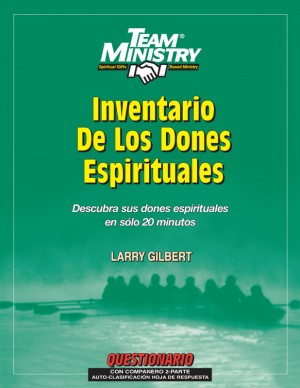People are unique beings in all of God’s creation.
What we believe about people is based on the biblical account of the early history of humanity. Contrary to the evolutionary view of origins, the biblical view of people identifies them as unique from animals.
The Bible teaches that God created man out of the dust of the ground and gave him life by personally breathing the breath of life into him (Genesis 2:7). Later, God made woman from a rib taken from the man’s side (Genesis 2:21-22).
The Bible teaches that God created people in His own image and likeness (Genesis 1:26).
These words “image and likeness” describe two aspects of our original nature which help us understand ourselves today.
The word image suggests something that is similar, with the same properties, but not necessarily identical. When God made people in His own image, He made them similar to Himself. This means He reproduced some aspect of Himself in people. This probably had nothing to do with physical appearance since God is Spirit and not limited to a physical body. Rather, the image of God in people probably refers to their ability to think and make decisions, feel emotion, and act freely. Although the image of God in people has been marred by sin, people still retain a limited use of these faculties.
The word likeness describes the original state of innocence into which people were created. Originally, people were holy like God in the sense they had no sin nature and did not practice sin. At the Fall, this likeness was lost. Part of the saving work of Christ in our life is to restore that likeness in our life. We regain our spiritual likeness with God at conversion (Romans 5:19). We realize a character likeness with God through sanctification (Romans 8:29). We will experience a physical likeness with God at our glorification (1 Corinthians 15:52-53; 1 John 3:2).
The biblical view of people recognizes the existence of both a physical and metaphysical aspect of their being.
The material part of a person is described as the body. In addition to the material part of people, there is also an immaterial part most often described as the soul or spirit. The Bible uses these terms to identify something other than a person’s physical body that cannot be defined materially. These two terms, soul and spirit, are similar and are sometimes used interchangeably. Yet at the same time, the Bible describes subtle differences between the soul and spirit (Hebrews 4:12).
Part of our understanding of people today necessarily involves understanding the nature of sin.
As we look at what the Bible teaches about people, we find ourselves describing two kinds of people: the kind of people God made, fantastic creatures, the climax of His entire creation and the kind of people we are today, evil in nature and corrupt in behavior. Yet these are not actually two kinds of people at all, but the same race of people at two different points in their experience. When we look at how we began as a race and compare it to what we are today, we are bound to ask the question, “What went wrong?”
The answer to that question is found in the biblical account of the introduction of sin into the human race. When God completed His creative work, He noted all He had made was “very good” (Genesis 1:31). But when Satan entered the garden and successfully tempted our first parents to violate God’s express command not to eat a certain fruit, sin became a part of the human experience, corrupting all God made. The entire human race fell into sin when Adam and Eve deliberately chose by an act of their own will to disobey God and fulfill their own desires (Genesis 3:6-8).
The same Satan who caused the human race to plunge into sin is still active today directly and indirectly tempting people to do wrong. Although Adam and Eve failed when tempted, Jesus was tempted and was able to overcome the Devil (Matthew 4:1-11). As a Christian, a follower of Christ, you can resist temptation in the power of your new nature by letting Christ, who has defeated temptation and sin, live His life through you.
God created people as the high point of His creation.
Although sin has marred God’s creation, God still loves people and wants what is best for them.
The greatest evidence of God’s love for people is seen in what He has done to save them from the sin that threatens to destroy them by sending His only Son to pay the price of sin (John 3:16).
Christians who love people like God loves people will want to do their best to help others experience the salvation God has provided for their sin.
Dr. Elmer Towns is Vice President of Liberty University, which he co-founded in 1971 with Dr. Jerry Falwell. Dr. Towns has been a popular Sunday school teacher and college and seminary professor for decades.
This article is excerpted and condensed from Dr. Towns’ 60-page eBook Foundational Doctrines of the Faith. Read it NOW, eBook instant PDF Download, $11 value only $4.99, More…
Here is a summary article of the 8 Foundational Doctrines of the Christian Faith
RELATED ARTICLES: WHAT WE BELIEVE ABOUT…
Permission granted to copy, forward, share, post and reproduce everything in this article, please include this link Source: ChurchGrowth.org, CLICK HERE to subscribe for FREE
To grow as a Christian, you need to…
- Pray, worship God and read The Bible each day,
- Join a small group with other Christians to encourage each other’s Christian growth,
- Each week, join in worship at a good Church that preaches The Bible as God’s Word,
- And minister to others in the name of God.
Discover more about how God has given to you spiritual Gifts for your own personal ministry and for ministry with others using the links and resources shown below.
Here are more free articles, one for each of the nine Team Ministry Spiritual Gifts…
Each of these nine Team Ministry Spiritual Gift articles was excerpted from the book Your Gifts: Discover God’s Unique Design for You.
Discover more about your spiritual gifts and each of the nine team gifts.
For individuals and groups.
Read This Book NOW, eBook Instant PDF Download, Click Here
Read This Book with Your Group, Bulk Pricing for Groups, Click Here

Spiritual Gifts Can Unleash the Power of Everyone!
Lead others to discover their spiritual gifts.
For pastors, teachers and group leaders.
Read This Book Now, eBook Instant PDF Download, Click Here
Read This Book with Your Group of Pastors and Shepherds, Bulk Pricing for Groups, Click Here














